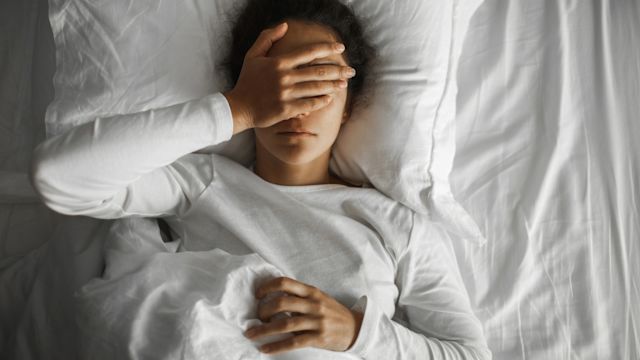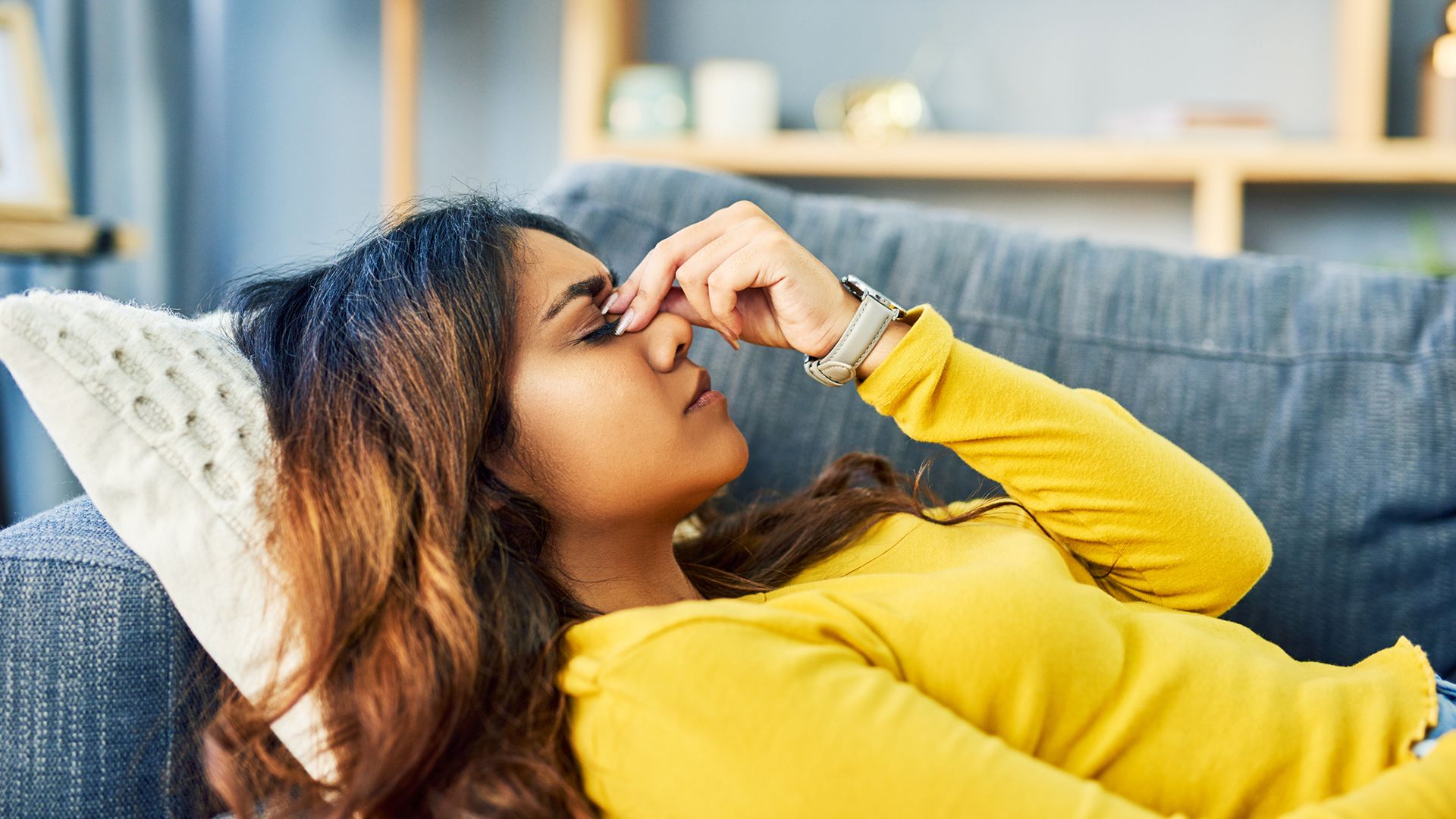Updated on August 28, 2024
One of the most important goals of treatment for chronic migraine is to reduce the number of headache days a person experiences each month.
People with chronic migraine will typically be prescribed a preventive or prophylactic therapy to prevent migraine and headache symptoms from occurring. These medications are taken regularly and need to be taken continuously. (A person will also need an acute therapy that shortens the duration and lessens the symptoms of any migraines that occur despite the preventive therapy).
Treatment also involves avoiding things that can trigger migraines, and addressing the many ways that experiencing frequent migraines can affect a person’s quality of life. This includes sleep.
The association between sleep and migraines
Sleep and migraines can have a bidirectional relationship. Headache pain and other migraine symptoms can interfere with normal sleep schedules. Too little sleep, poor sleep quality, and disruptions to sleep schedules can increase the risk of having a migraine attack the following day. It’s also worth noting that migraine attacks occur more frequently in the morning, in many cases when a person wakes from sleep.
A deeper understanding of the relationship between migraine and sleep is a topic of interest to medical researchers. Studies have found evidence of altered sleep phases in people who have migraine—specifically, those with migraine spend less of their total sleep time in the REM (rapid-eye-movement) phase. REM sleep involves increased brain activity, and it is thought to play an important role in memory and numerous physiological functions, though it is not fully understood.
People with migraine are at a greater risk of sleep disorders. Research suggests that sleep disorders and migraines may have common underlying causes or contributing factors.
Sleep disorders associated with migraines
- Insomnia. Difficulty falling asleep or staying asleep. This is the most common sleep disorder among people with migraine.
- Obstructive sleep apnea. Pauses in breathing during sleep.
- Hypersomnia. Excessive sleepiness during waking hours.
- Parasomnias. Abnormal or unpleasant actions or experiences that occur around or during sleep. Examples include sleepwalking, talking during sleep, eating while half asleep, nightmares, night terrors, and sleep paralysis.
- Restless leg syndrome. Uncomfortable sensations (such as tingling) and the urge to move the legs when lying down or sitting.
- Bruxism. Grinding or clenching teeth.
Talking about sleep with a healthcare provider
Sleep is something that anyone living with chronic migraine should discuss with their healthcare providers, including their primary care provider and the neurologist or headache specialist they see for chronic migraine. (And ideally, a person’s different healthcare providers should be in communication with one another—as with many conditions, chronic migraine benefits from an interdisciplinary approach).
Sleep-related topics to discuss with a healthcare provider:
- The number of hours you sleep per night
- Any times you wake during the night
- Difficulty falling asleep or staying asleep
- Your sleep habits, including the time you go to bed, your bedtime routine, and the time you wake in the morning
- If you typically feel rested after sleep
- If you feel fatigued or sleepy during the daytime
- Any symptoms of obstructive sleep apnea, including loud snoring, snorting, and gasping during sleep
- Any occurrences of sleepwalking, abnormal movements during sleep, or acting out dreams
If you are keeping a headache diary, it can be helpful to include notes on sleep. (If you are not keeping a headache diary or haven’t been keeping up with a headache diary, sleep concerns can be a good reason to resume tracking your symptoms).
Also be prepared to discuss any medications you take, including prescriptions, over-the-counter medications, and supplements (such as vitamins or herbal supplements).






